Publications
Articles, publications, books, tools and multimedia features from the U.S. Institute of Peace provide the latest news, analysis, research findings, practitioner guides and reports, all related to the conflict zones and issues that are at the center of the Institute’s work to prevent and reduce violent conflict.
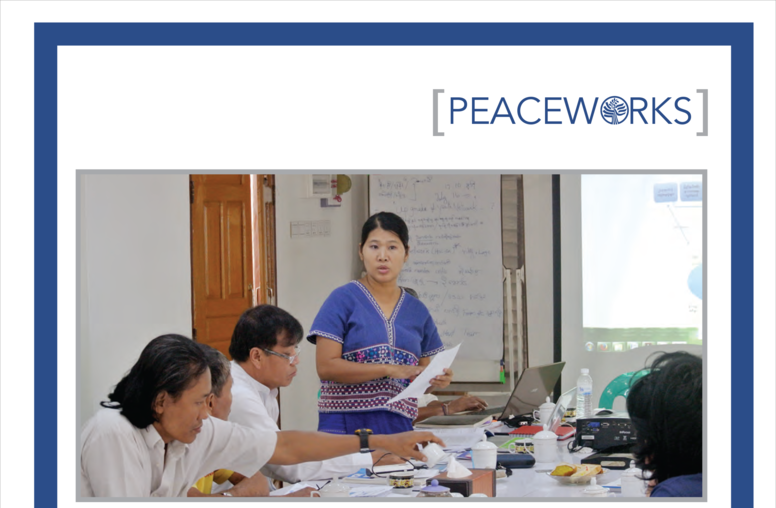
Nonformal Dialogues in National Peacemaking
Nonformal dialogues offer complementary approaches to formal dialogues in national peacemaking efforts in contexts of conflict. As exemplified by the nonformal dialogues in Myanmar, Lebanon, and Nepal examined in this report, nonformal dialogues are able to...
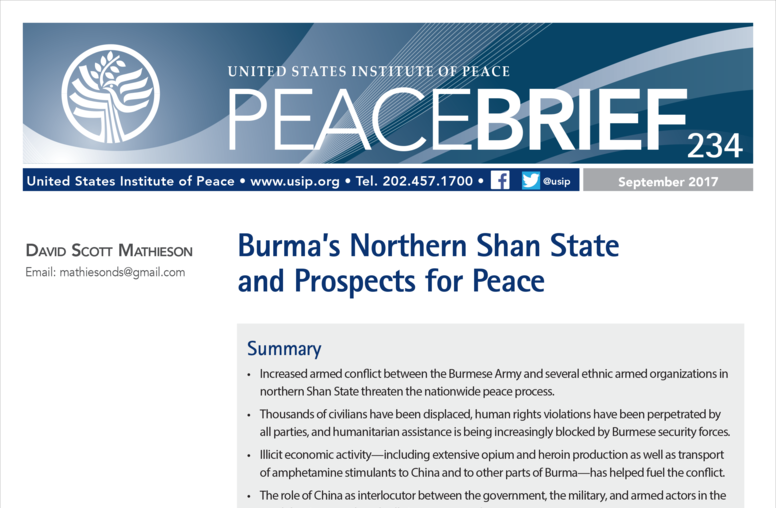
Burma’s Northern Shan State and Prospects for Peace
This Brief focuses on conflict dynamics to provide an overview of resurgent conflict patterns in northern Shan State over the past two years, outlines the armed groups involved, their competing interests, the human rights effects on the civilians in the area, and how the fighting has affected the nationwide ceasefire.
Two Vital Steps on Burma’s Rohingya Crisis
As thousands more Burmese Rohingya refugees have poured into Bangladesh this week amid new images of their home villages burned, former U.S. Ambassador Derek Mitchell underscores the need for urgent humanitarian assistance, and continued international engagement with the Burmese government to halt the violence in Burma’s western state of Rakhine.
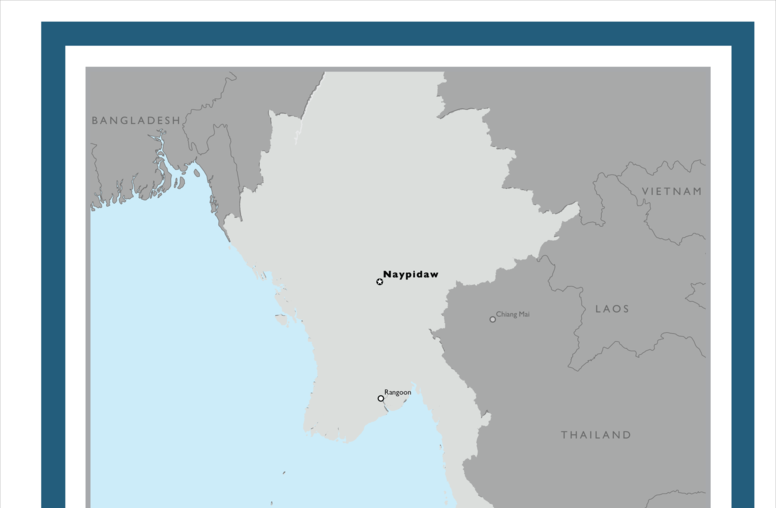
From Pariah to Partner: The US Integrated Reform Mission in Burma
This series of case studies—Burma (2009-2015), Jordan (2011-2016), and the Lake Chad Region (2013-2016)—document efforts and draw lessons from where US government leaders believe deepening crises were staved off through collaborative inter-agency engagement. Part of USIP’s “3D Learning from Complex Crises” project, the cases provide programmatic and operational lessons from complex operating environments. These lessons support systemic integrated approaches to complex crises and will better equip individuals to share objectives when working in inter-agency environments.
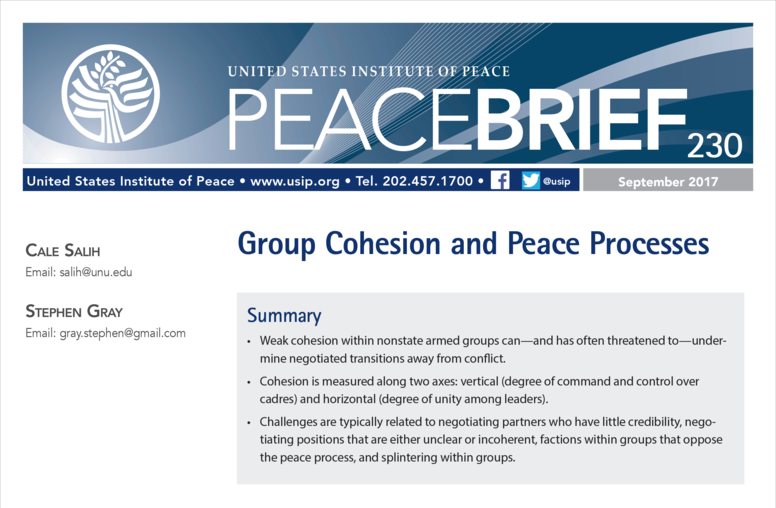
Group Cohesion and Peace Processes
Drawing on a wide range of cases, including Burma, Colombia, Senegal, and Uganda, this Peace Brief discusses the internal cohesion of nonstate armed groups, explains how weak cohesion can undermine a peace process, and offers various strategies that those supporting peace processes can deploy to mitigate such risks.
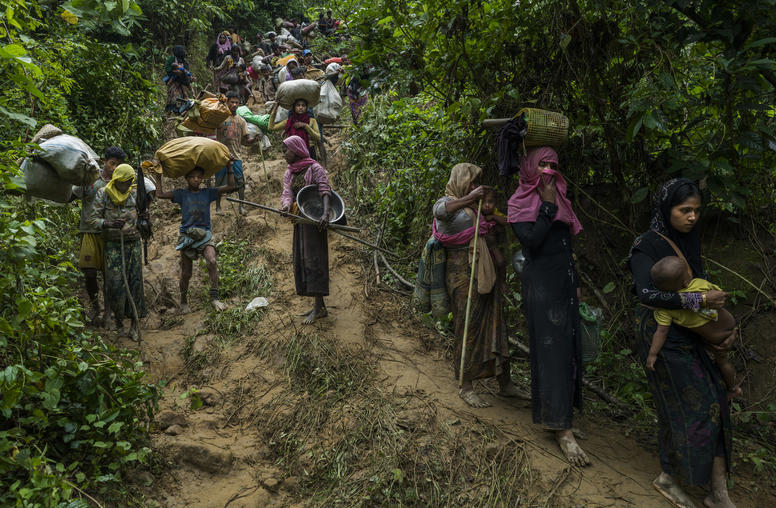
No Quick Answers on Burma’s Rohingya, Mitchell Says
The crisis of Burma’s Rohingya minority, with an estimated 164,000 already having fled to neighboring Bangladesh, can’t be resolved with any quick strokes such as sanctions or diplomatic pressure, said Derek Mitchell, a former U.S. ambassador to Burma and a senior advisor at the U.S. Institute of Peace.
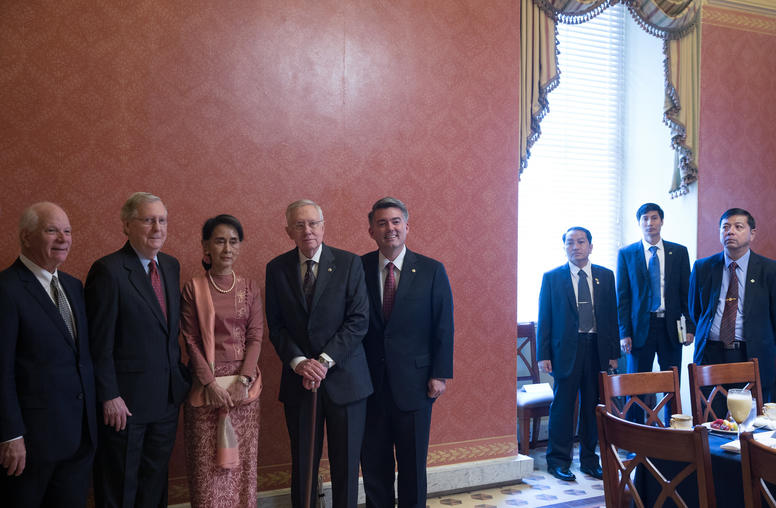
American Leadership in the Asia Pacific, Part 3: Promoting Democracy, Human Rights, and the Rule of Law
Derek Mitchell, senior advisor to USIP's Asia Center, testimony before the Senate Foreign Relations Subcommittee on East Asia, the Pacific, and International Cybersecurity Policy
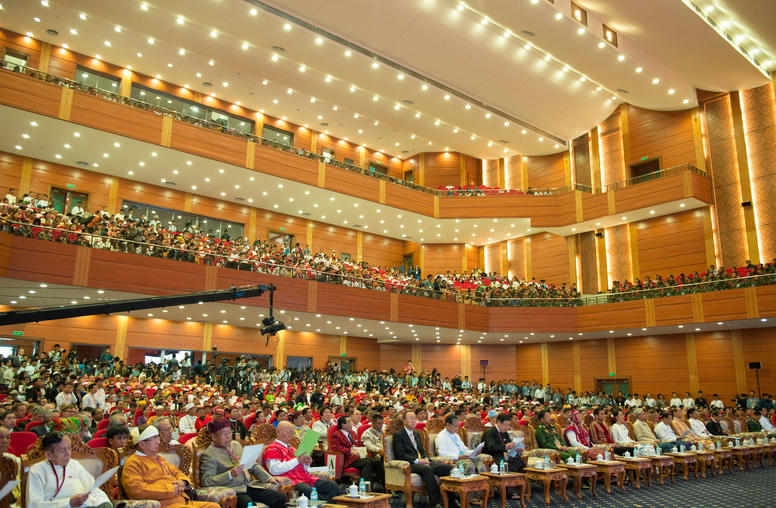
Q&A: What’s Next for Burma’s National Dialogue
Burma's national dialogue, stalled for months, advanced this week with the opening of the second round of the 21st Century Panglong Peace Conference in Naypyitaw, the capital. The five days of political talks focus on working out a federal system to resolve the country’s ethnic tensions.
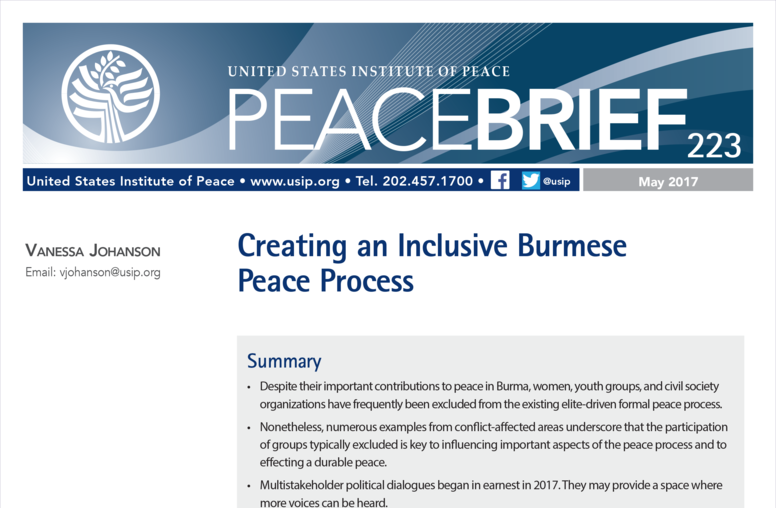
Creating an Inclusive Burmese Peace Process
Burma's peace process reached a milestone with the October 2015 signing of the Nationwide Ceasefire Agreement. The Aung San Suu Kyi government, the most democratic in living memory, has prioritized the peace process; however, many women's and youth groups and other civil society organizations have been marginalized during the negotiations, their voices on important topics silenced in favor of elite input. As a result, a parallel track of activism aimed toward peacebuilding outside the formal structure has developed. The international community should support both tracks while continuing to urge the formal inclusion of marginal groups in the main process.
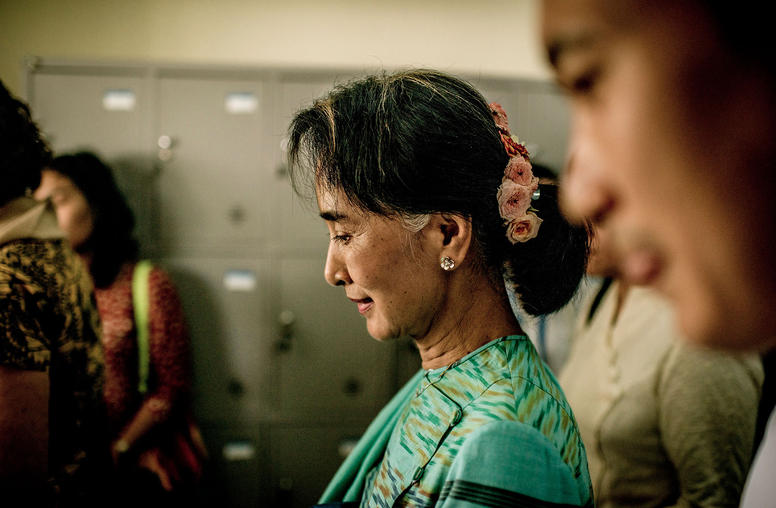
Myanmar's government -- time for course correction?
Myanmar at the end of March will mark the first anniversary of the historic ascension to power of the National League for Democracy under its leader Aung San Suu Kyi. Those who experienced the euphoria after the embattled opposition's landslide victory in November 2015 will never forget this unlikely culmination of more than a quarter of a century of struggle -- at the cost of many lives -- for democracy, peace and justice.